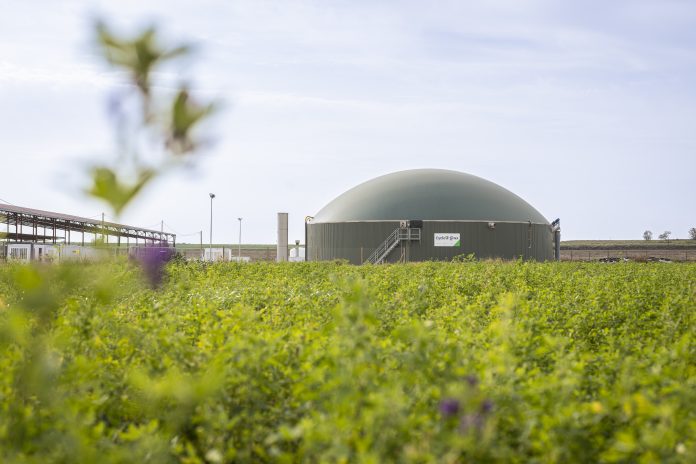Lucknow: Uttar Pradesh is on track to set a national example by transforming waste into valuable resources. The state is quickly becoming a central location for producing compressed biogas, a type of fuel made from materials like cow dung, farm waste, and food scraps from cities, reported Hindustan Times.
In both the number of operating facilities and those being planned, Uttar Pradesh holds a significant lead over all other Indian states. Experts say this success is due to the easy access to waste materials, a strong need for gas, and the state’s encouraging policy that offers financial benefits and support.
“Uttar Pradesh is rapidly becoming a national center for compressed biogas, using local waste to create both fuel and fertilizer,” said state energy minister AK Sharma. He added, “These plants are tackling the issue of crop burning, providing extra earnings for farmers, and helping the environment.”
Official numbers show that the state has 251 registered biogas projects—the most in India. Currently, 34 plants are up and running, and 37 have been built, which is also the highest in the country. Other leading states like Gujarat, Haryana, and Maharashtra are far behind. An additional 61 plants are under construction.
“Uttar Pradesh has become the leader in India’s compressed biogas program, with the highest number of registered and working plants nationwide,” said senior energy official Narendra Bhushan, noting that work is ongoing to speed up the development of planned plants.
A state energy director, Indrajeit Singh, shared that the government has approved 47 compressed biogas plants so far. These represent a major investment and will produce hundreds of tons of fuel each day. Additional projects for bio-coal and biodiesel have also been cleared, bringing the total approved investment to thousands of crores of rupees.
Furthermore, the state has plans for over a hundred more such plants, which would bring in even more investment to the renewable energy sector.
According to project officer Ajay Kumar, the 37 currently operating plants are producing a substantial amount of gas every day. This gas is used in vehicles, industries, and for cooking as an alternative to traditional natural gas.
Kumar explained that a plant using rice farm waste needs about 12.5 tons of it to produce one ton of biogas. This biogas is a direct substitute for the compressed natural gas used in vehicles. Oil and gas companies have been directed to buy this biogas, which currently sells for a similar price per kilogram as regular gas.
Major oil and gas companies are setting up plants in Uttar Pradesh. Officials state that the large amount of available waste materials is the foundation for this growth, with over two million farmers already registered on a state portal to supply waste. Technical support is being provided by leading institutes to ensure these projects succeed.
A retired official involved with a plant in Badaun noted, “I believe the large supply of farm waste and the high demand for gas make Uttar Pradesh a perfect location for these biogas plants.”
An official from a major oil company added that other states have not created policies as appealing as Uttar Pradesh’s for this type of energy. He said that while most plants in the state use a mix of materials, the majority run on farm waste, particularly rice straw.
He also highlighted a direct benefit for farmers, stating, “Farmers are finding a new value for their waste, selling rice straw for prices that can reach over ₹6,000 per ton to these biogas plants.”














